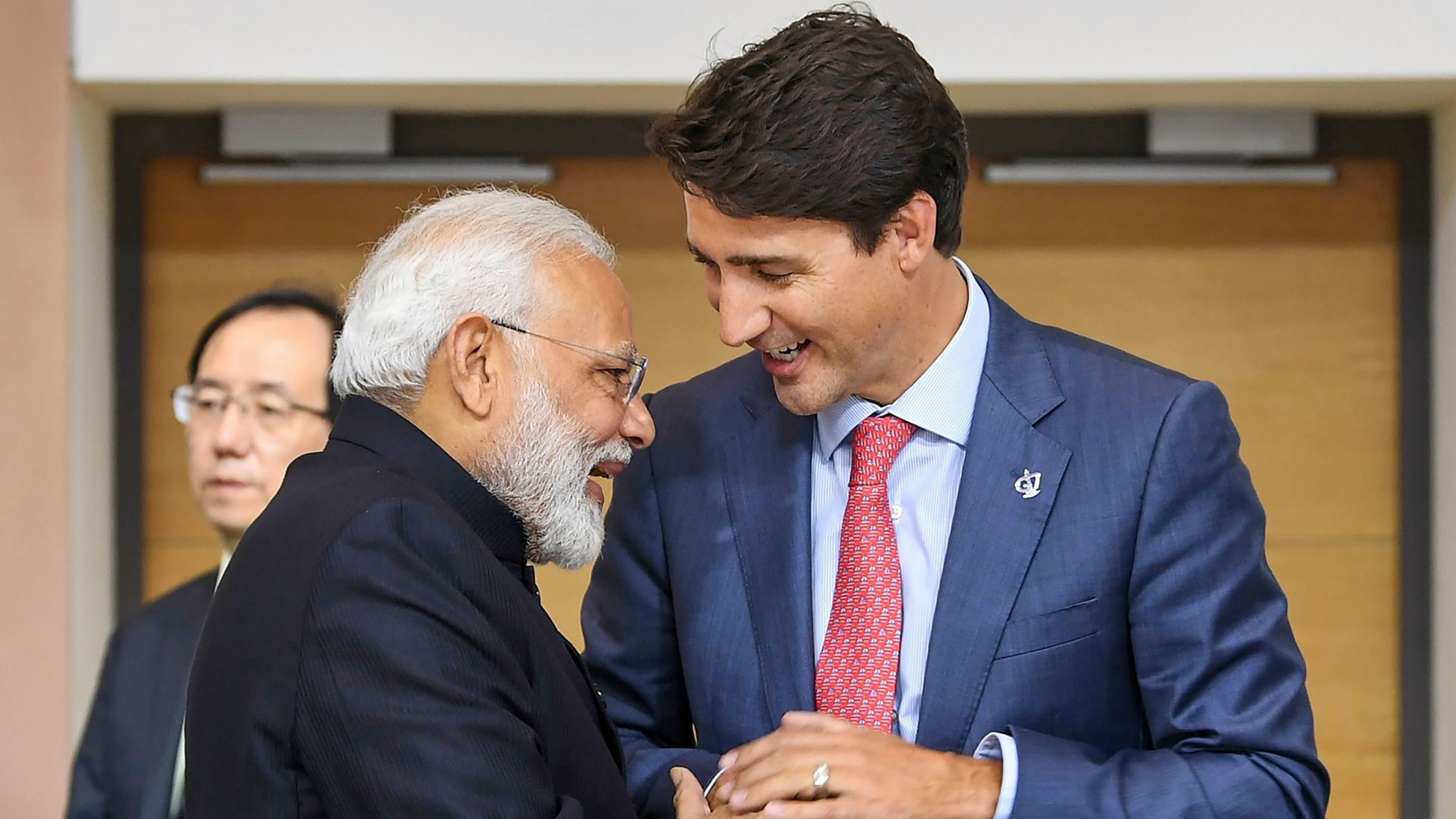
Prime Minister Narendra Modi with his Canadian counterpart Justin Trudeau.
Credit: PTI File Photo
By Mihir Sharma
Canadian Prime Minister Justin Trudeau’s dramatic statement in parliament that there were “credible allegations” Indian intelligence was behind the murder of a radical Sikh activist in British Columbia came as a shock to many in India for a couple of reasons. For one thing, most of us still believe that we’re the good guys and our government doesn’t do this kind of thing.
More importantly, if India actually did conduct an assassination on Western soil — which its foreign ministry strongly denies — it would represent a pretty major escalation of the country’s covert struggle against both non-violent dissidents and active supporters of militant separatism abroad. Even the most fervent supporters of the government’s muscular approach to foreign policy should have qualms about that possibility.
Prime Minister Narendra Modi has long pledged to change India’s traditionally quietist approach to international relations. After a terrorist attack in Kashmir in 2019, he declared in a much-quoted campaign speech that his policy was to “barge into [their] homes and kill them.”
Everyone knew that he meant, in particular, the homes of extremists living abroad. That was followed quickly by an air force raid into Pakistani territory that targeted a supposed terrorist training center. The mission was wildly popular: Leaders in Modi’s party argued that it helped them sweep general elections a few weeks later.
On right-wing social media, where the Indian establishment often tests out its narratives before adopting them on the world stage, there was both jubilation and a bit of confusion after Trudeau’s speech. Some commenters seemed to assume we did carry out the hit — and should be proud of how powerful a nation we have become. Others tried to argue we didn’t do it and Trudeau was an obvious liar. Many tried both, sometimes in the same tweet.
Some in India no doubt hope the government will be able to pull off an Israel-like strategic ambiguity here, with everyone suspecting that our intelligence services were behind the killing but nobody being able to prove it. This would, in turn, keep our diplomatic stature intact.
The chances are, though, that in stonewalling the Canadians, we may come off less like Israel and more like OJ Simpson: not achieving plausible deniability so much as engaging in an “if I did it” celebration that cements our guilt in the world’s mind.
After all, the fact that things have gotten this far is already a diplomatic and intelligence failure. The murdered man, Hardeep Singh Nijjar, may not have been the saintly community leader and civil-rights activist that some Canadian politicians are making him out to be. Nevertheless, once Canadian officials raised the issue privately, the priority should have been to keep Trudeau from making a fuss about it as long as he only had “accusations” to level.
Instead, the meeting between Trudeau and Modi at the G-20 summit in New Delhi recently, where the Nijjar killing was discussed, seems to have been a trainwreck for the ages. Trudeau said he brought the accusations to Modi “personally and directly.” The official Indian readout of the meeting, meanwhile, makes only one point, accusing Canada of supporting a “nexus” of religious militancy and “organized crime, drug syndicates, and human trafficking.”
There’s a lot we still don’t know about this case. The official Indian view, that the Canadian establishment is riddled with sympathizers of the Sikh separatist movement who have allowed extreme viewpoints to color a murder investigation, may turn out to have some merit in it. What matters now is that the Canadians conduct an investigation that is as transparent as possible, and the Indian government cooperates as publicly as it can.
If there turns out to be sufficient evidence that this was a state-sponsored killing, we must then accept that there is a qualitative difference between this and past Indian policy on extremism abroad. Sure, New Delhi is believed to have had militants in exile in Pakistan killed in the past. The larger diaspora has always been off-limits, though, even when relations with the West were far worse than they are now.
When Modi runs for re-election next year, his supporters will no doubt point to this case as further evidence that he has changed India’s image in the world from that of a weak state to a strong one. Yet, it is one thing to have the power to reach across continents and kill those you fear; it is another thing entirely to do it in a manner that insults your friends and the values they — and you, supposedly — cherish. To the rest of the world, we might end up looking a lot more like Rwanda or Russia than Israel or the US.